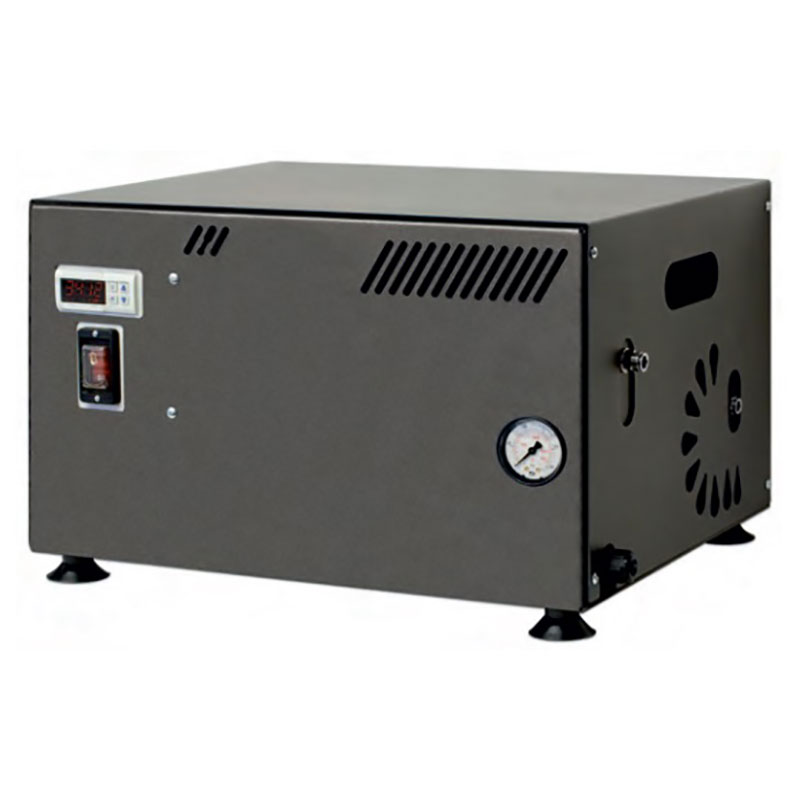Cooling, dust control, odor control and creation of a favorable microclimate using fogging.
- High-pressure plunger pump;
- Built-in 3L tank with overflow protection;
- Built-in cyclic timer for switching on, switching off and drainage;
- Working pressure - 70-150 bar;
- Overall dimensions: 650x440x340 mm, weight 37 kg;
- Made of high-strength piston with ceramic coating;
- Pressure regulating valve, built-in bypass;
- Pressure gauge filled with glycerin;
- Built-in solenoid water discharge valve (drain valve) 230 V, 50 Hz;
- Power: 800 W, 4.0 Ah - 1000 W, 5.0 Ah;
- Industrial three-phase electric motor with overheating protection, 1450 rpm, 2.2 k / s, air cooling;
- On / off button;
- Dry running prevention system;
- 1 phase - 3 phase power converters 1.5 kW, with soft start;
- Automatic water supply control system;
- Allows independent control of several sectors;
- Automatic shutdown if all lines are closed;
- Automatic shutdown in case of water failure;
- Automatic shutdown in case of leakage or breakdown;
- Automatic switching on if at least one of the lines is open;
- Automatic shutdown in case of motor overheating;
- Closed anti-corrosion metal case on rubber feet with vibration protection;
- Manufactured in accordance with CE requirements;
- Voltage: 220V;
- Noise level 60 dB (A).
Application of the Evolution Time VAR high-pressure pump
The 70-100 bar high-pressure pump crushes liquid droplets into fine dust up to 5 microns, while the effect of "lightning evaporation" appears, reduces the ambient temperature. The systems create a unique and pleasant microclimate, reducing the temperature by 7-15 degrees, it is not for nothing that they are called "outdoor air conditioners". Our systems are actively used: on summer areas of restaurants, cafes, terraces, in gazebos, on beach areas. After installing the fog cooling system, you and your guests will be able to be in the open air on a hot day, not in a room under an air conditioner, without experiencing sweltering heat. A special feature of this pump is the ability to divide the system into several sectors with different volumes of water.

